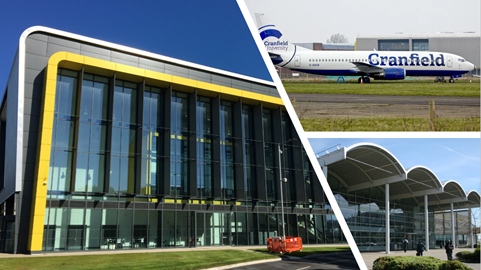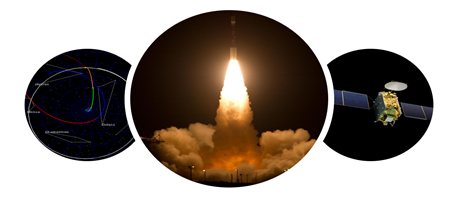My experience of Astronautics and Space Engineering MSc
30/03/2021

I have found that the Astronautics and Space Engineering MSc has given me all the relevant opportunities to study the things I have been passionate about for the last few years. It was the perfect course that allowed me to really investigate the specific topics I was interested in and specialise within this field.
Cranfield University itself is prestigious when it comes to research output, particularly related to the aerospace sector. This, as well as world-class facilities and its own airfield! I feel the core modules of this course provide the fundamental understanding for any aspiring space engineer, and the vast choice of electives allow you to specialise in any area you are interested in.
Personally, I enrolled in the Mathematics and Programming for Trajectory Design and Spacecraft Dynamics and Control modules, but there really are many possibilities to explore. Also, the standard that the taught modules are delivered is very refreshing, and every academic staff really is an expert in their field. Their support, guidance and perseverance throughout the Covid pandemic has been inspirational! It provides students with the necessary challenge and experience so that they are ready to enter the space industry and continue working on the future technical developments of space engineering.

Due to my academic modules and work experience, my main interests now are rocket propulsion and mission analysis. I am currently participating in the Group Design Project where we are designing a Debris Scavenger Spacecraft that will be implemented in the GEO region to help mitigate the increase in space debris. I am on the mission analysis team for that, and it’s great that I can take what I have learned from my part-time work at Asteria and apply it to my university work and vice versa. This is also the case in my space propulsion module, where I learned a lot of the fundamental principles of hybrid engines and the theory behind different systems of rocket which has really helped me out during my MSc.

Follow my postgraduate journey in my next blog where you will learn about my experience of the Astronautics and Space Engineering MSc.
Categories & Tags:
Leave a comment on this post:
You might also like…
From classroom to cockpit: What’s next after Cranfield
The Air Transport Management MSc isn’t just about learning theory — it’s about preparing for a career in the aviation industry. Adit shares his dream job, insights from classmates, and advice for prospective students. ...
Setting up a shared group folder in a reference manager
Many of our students are now busy working on their group projects. One easy way to share references amongst a group is to set up group folders in a reference manager like Mendeley or Zotero. ...
Company codes – CUSIP, SEDOL, ISIN…. What do they mean and how can you use them in our Library resources?
As you use our many finance resources, you will probably notice unique company identifiers which may be codes or symbols. It is worth spending some time getting to know what these are and which resources ...
Supporting careers in defence through specialist education
As a materials engineer by background, I have always been drawn to fields where technical expertise directly shapes real‑world outcomes. Few sectors exemplify this better than defence. Engineering careers in defence sit at the ...
What being a woman in STEM means to me
STEM is both a way of thinking and a practical toolkit. It sharpens reasoning and equips us to turn ideas into solutions with measurable impact. For me, STEM has never been only about acquiring ...
A woman’s experience in environmental science within defence
When I stepped into the gates of the Defence Academy it was the 30th September 2019. I did not know at the time that this would be the beginning of a long journey as ...






